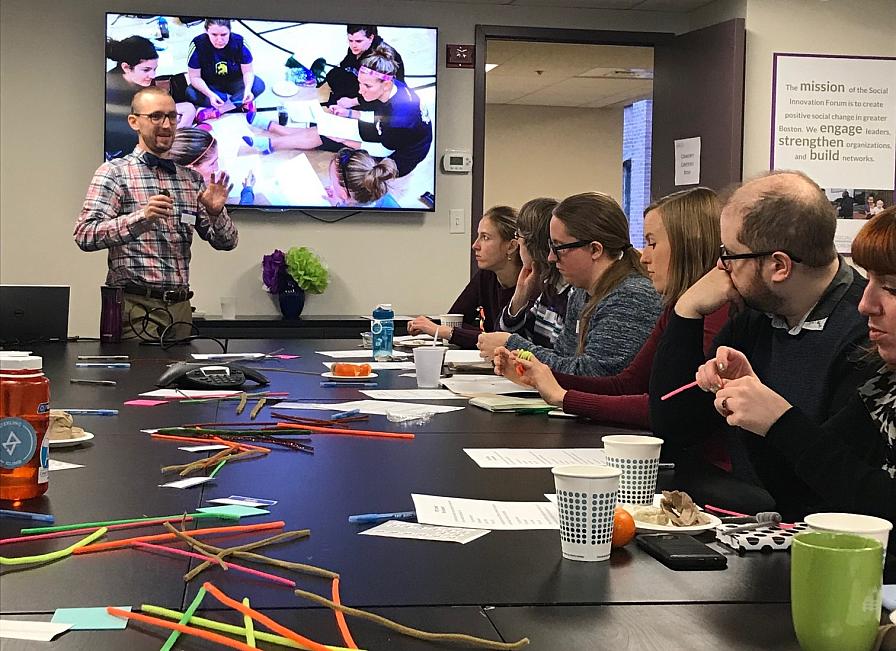
On February 14, the Social Innovation Forum hosted the first workshop of a two part series focused on Disability, Accessibility, and Inclusion. Led by Steve Slowinski from 2018 Social Innovator Partners for Youth with Disability (PYD), the “Introduction to Disability and Inclusion” workshop taught participants the basic principles of ableism and inclusion. A deeper look into disability etiquette will take place April 30, with a focus on “Building Accessible, Inclusive Workplaces & Events.” Here are some key takeaways from the first workshop.
Medical vs. Social Models of Disability
Steve opened the workshop with the question, “What is Disability?”. The answer was teased out by small groups who named a variety of different disabilities, each one nuanced with their own complex cultures. This led to the pivotal question, “What makes someone disabled?”. The medical model, the most popular, commonplace definition of disability, states that people are disabled based on their impairments or differences. This places the “problem” of disability on the disabled individual making it their responsibility to fix themselves in order to participate in an able world.
Steve challenged us to view disability differently, through the social model of disability. He explained that a wheelchair user is fully able in their home that accommodates them. It is only when faced with a building without ramps that they become disabled (not able to participate). Based on the social model, disability is a product of social and physical environments. Continuing to view disability through the medical model promotes ableism --discrimination against disabled people -- and causes people to treat disabled individuals as the problem.
Recognizing Ableism
To understand ableism, it is imperative to recognize how society is structured to favor able people. Able privilege encompasses accessibility, language choice, low expectations, microaggressions, and lack of knowledge. All of these aspects are a part of everyday life. Everyday language like “lame”, “insane”, and “idiot” have roots in medicine and a history of discriminatory use about people with disabilities. This builds on the assumption that disability is a detriment. The language we use towards and about disabled individuals (e.g. “wheelchair bound” and “special ed’) disregards their autonomy.
Steve also taught the group about “person-first” vs. “identity-first” language. Person first is where someone’s personhood is mentioned before their disability, such as “he is a person with blindness” instead of “he is blind”, which is identity first. It is tricky to know which is the best form to use as many people prefer identity first because it is a source of pride to own their narrative. In all cases, it is best to ask what someone is comfortable with before assuming the proper way to communicate.
The first step to dismantling ableism is recognition.
According to Steve, the first step to dismantling ableism is recognition. With this knowledge, we can all work towards a more inclusive, understanding future. Before the workshop only four people out of the eighteen attendees felt they understood person-first and identity-first language to a great extent. Afterwards, 14 people felt confident and felt that they would know how to use it properly. One testimonial from the workshop states “Useful for any individual or organization looking to create a more inclusive environment and society. Steve is a great presenter; very professional and easy to relate to. Love his confidence! 5 stars.” Attendees came from many different nonprofits, some with no disability background, but all reported an increase in their understanding of disability, ableism, and how to be inclusive.
Partners for Youth with Disabilities is a 2018 Social Innovator focused on creating a world where young people with disabilities will be able to live with dignity and pride in who they are, and to lead self-determined lives filled with purpose. PYD offers a variety of workshops and trainings that can be tailored to your organization or program. Learn more here.
 Social Innovation Forum
Social Innovation Forum